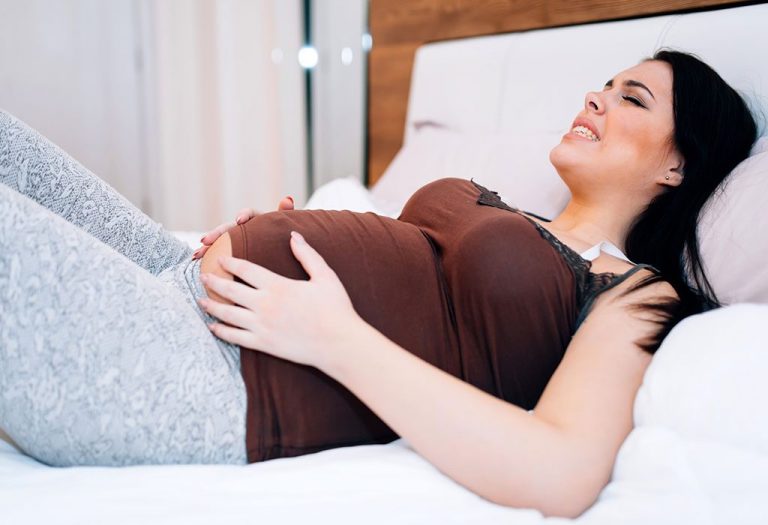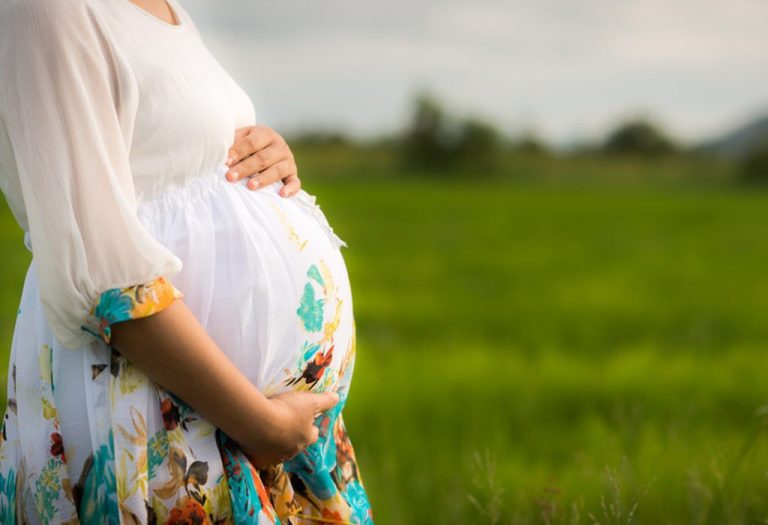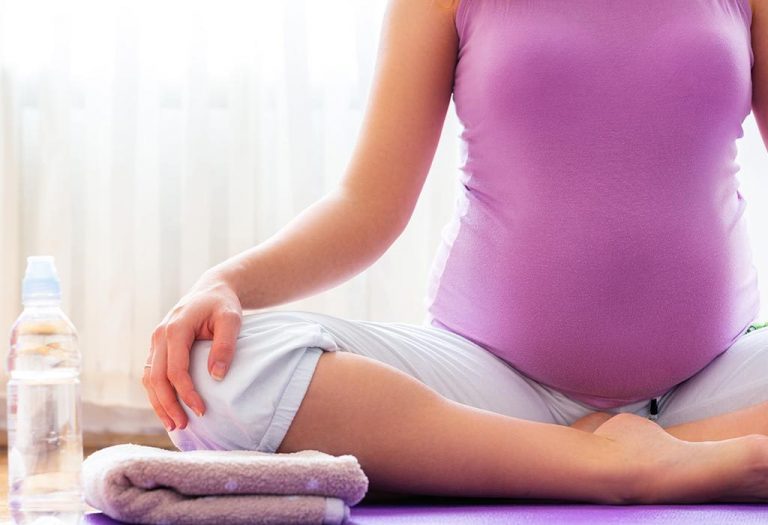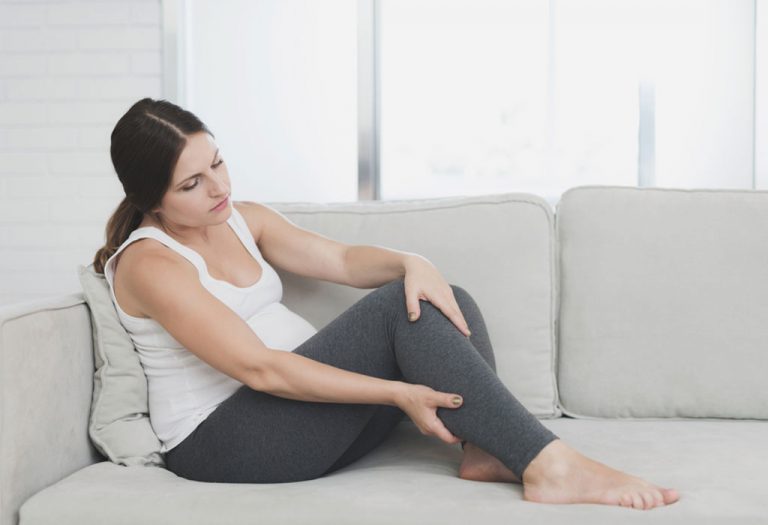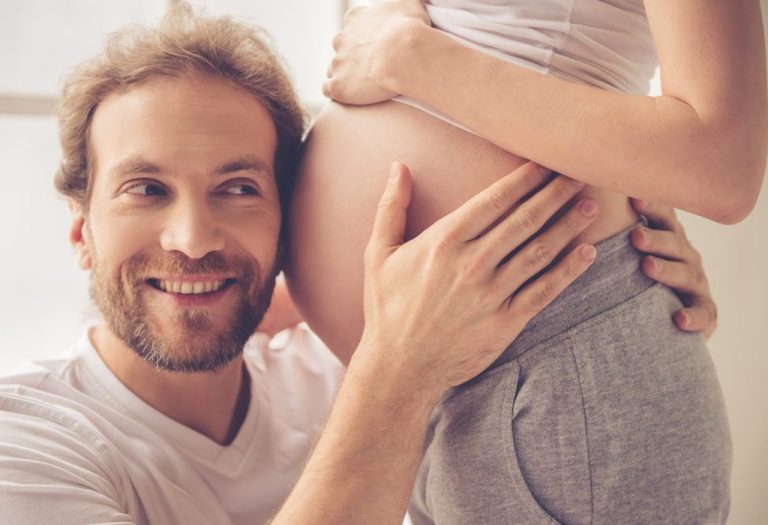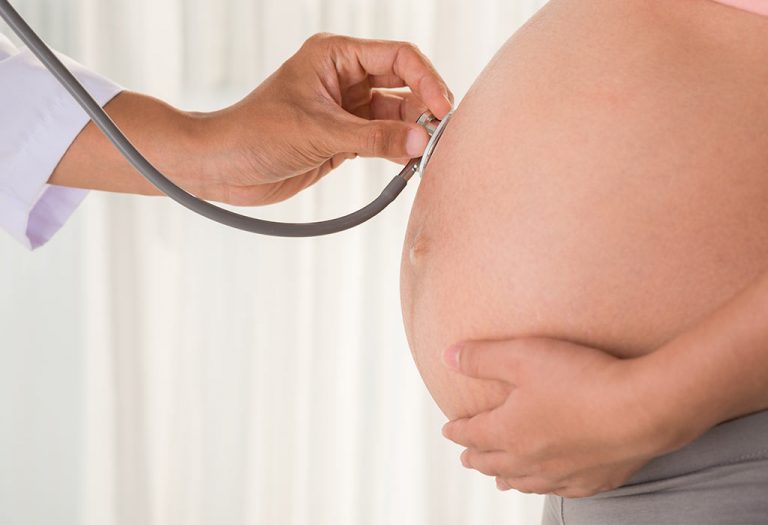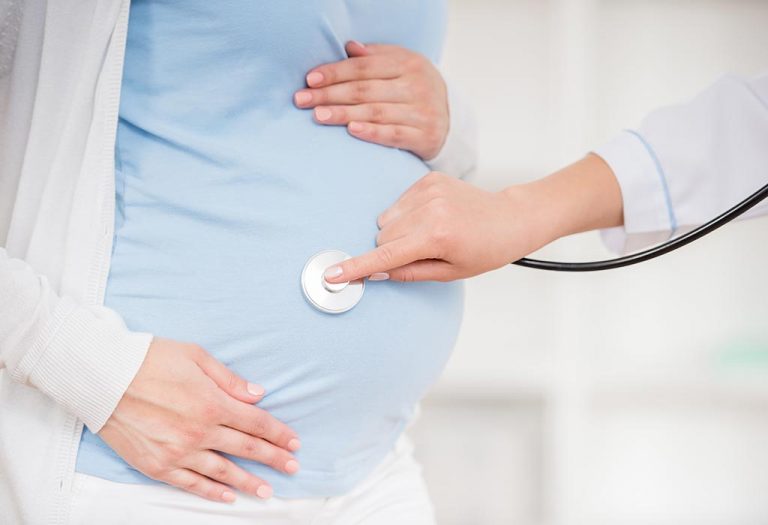Cramping in Pregnancy – Causes, Signs and How to Relieve

One of the most common problems that a pregnant woman faces is cramping. Pregnancy cramps can occur at various stages, and while they are typically harmless, they can be uncomfortable and alarming. As you take baby steps towards the new chapter of your life, understanding the causes and nature of cramping in early pregnancy can help ease your concerns. Here is what you should know about cramps in the stomach during pregnancy and when to seek medical advice. Cramping in early pregnancy is often related to the body adjusting to the changes it is undergoing.
What is Cramping in Pregnancy?
Lower abdominal cramps in early pregnancy happen because the uterus expands, causing the ligaments and muscles supporting the uterus to stretch. Since the uterus is a muscle, it usually responds to change, through contractions resulting in cramps. While abdominal pain in pregnancy is common in expectant mothers, it is important to find out when cramping could be a concern. Many women experience light cramping, but it is not much to be concerned about, because it may fade without any specific care. Bear in mind though, if you experience occasional uterine cramping, it could be a sign of pregnancy complications. Read on for an overview of the physical changes that your body might go through, including cramping and abdominal pain.
Is It Normal to Have Cramps During Pregnancy?
In most cases, mild tummy cramps should not be a matter of concern because it’s just a part of early pregnancy symptoms. Cramping is a sign that your body is preparing to carry the baby, and is gearing up for change. Some expectant mothers could experience cramps with a little bleeding as the embryo implants itself into the wall of the womb. You may also experience cramps while sneezing, coughing or changing positions during pregnancy.
What Do Early Pregnancy Cramps Feel Like?
Every woman describes cramps differently, but they are best described as pulling sensations on one or both sides of your abdomen. Some may describe the experience as a sharp, stabbing, dull, heavy or “just annoying” pain. You may also feel period-like cramps because the uterus is contracting and it could feel heavy in the pelvis. Often the abdominal pain could be experienced more on one side than the other. You cannot completely avoid some level of discomfort and cramping. Knowledge about the causes and implications can prepare you to manage the cramping as you progress in the pregnancy.
Causes of Cramping in Pregnant Women
You must keep in mind that every pregnancy is unique with its own set of challenges. Though mild cramps are quite normal in pregnancy, the experience varies from one woman to another. Let us look at some of the common reasons for cramping at different stages of pregnancy:
Cramping During the First Trimester
Cramping during the first trimester is a common experience for many expectant mothers. While 1st trimester cramping is often harmless, it’s important to understand the causes and know when to seek medical attention if the cramps become severe or persistent.
1. Implantation Cramping
Cramps along with slight bleeding during the first three weeks of pregnancy occur because of the implantation of the embryo into the wall of the womb, and normally occur at the same time your period is due
2. Enlarging Uterus
Cramping often stems from the normal changes that may result because of the baby’s development in the uterus. Cramps could be further accompanied by light bleeding where the colour of the blood can be bright red, pink or brown. As the uterus is stretched it could lead to extending of muscles and ligaments that support the uterus and lead to abdominal pain or cramps.
3. Hormonal Changes
The veins supplying blood to the uterus become enlarged in this trimester and could make you feel heavy. Also, your body produces several hormones necessary to support the pregnancy, including progesterone. When progesterone increases, the ligaments tend to loosen up. The stretching of the abdomen accompanied by loose ligaments leads to cramping.
4. Gas or Bloating
Another common reason for cramps is gas and bloating, as hormones slow your digestion process and increase the pressure of your growing uterus on the stomach and intestines, resulting in constipation.
5. Stretching Ligaments
Some expectant mothers may experience sharp pains on one or both sides of the groin while standing up, stretching or twisting the body at around 12 weeks. This is because the ligaments that support your womb are stretching.
6. Ectopic Pregnancy
A pregnancy could be unsustainable if the fertilised egg is implanted outside of the uterus. Such a pregnancy is called ectopic pregnancy and can cause painful cramping. It is a serious medical condition which needs medical intervention. If you experience any form of abdominal or pelvic pain or tenderness, rush to your doctor.
7. Miscarriage
If you happen to witness any vaginal spotting along with mild or sharp cramping then it could be a sign of a miscarriage. Normally, cramping during a miscarriage is caused when blood and tissue leaving the uterus irritate it, causing it to contract. But, you should also know that some pregnant women who have spotting and cramping can very well conceive and continue with a healthy pregnancy till the end.
Your cramps might slowly fade as the uterus enlarges and is better supported by the bones in the pelvis.
Cramping During the Second Trimester
Stomach cramps during pregnancy in the 2nd trimester can be caused by the stretching of ligaments and muscles to accommodate your growing baby. While these cramps are often normal, it’s important to be aware of any unusual symptoms that might require medical attention.
1. Round Ligament Pain
The most common reason for cramping in this trimester is round ligament pain. A round ligament is a muscle that supports the uterus which stretches as your pregnancy progresses. You may feel a sharp, stabbing or dull pain in your lower abdomen as a result.
2. Multiples
If you are pregnant with multiples then the uterus will grow faster to reach third-trimester proportions. Since the ligaments and muscles have to bear the weight of the uterus, this may lead to cramps.
3. Uterine Fibroids
A rare cause of cramping in the second trimester, this happens because of the pressure of the growing uterus on previously infected intestinal tissue that may cause bowel obstruction. If you have a history of uterine fibroids, stay alert to any cramping at this stage, because you may require hospitalisation to manage the pain effectively until it subsides.
4. Placental Abruption
This happens when the placenta separates from the uterus before the baby is born. This could even be a life-threatening condition and is accompanied by a painful cramp that refuses to die down.
5. Pre-Eclampsia
You could experience cramping if diagnosed with Preeclampsia. This is a pregnancy complication, causing changes in your blood vessels, and leading to high blood pressure. Hemolysis, Elevated Liver enzymes and Low Platelets (HELLP) syndrome, a complication caused by Pre-eclampsia that also cause cramps.
Cramping During the Third Trimester
3rd trimester cramps are often associated with the growing pressure on your muscles and ligaments, as well as the onset of Braxton Hicks contractions. While these cramps are typically harmless, it’s important to monitor their frequency and intensity to ensure they are not signs of preterm labour.
1. Braxton Hicks Contractions
Braxton Hicks contractions, also called practice contractions, take place during the third trimester. Characterised by sporadic uterine contractions, these cramps are the body’s way of preparing for labour. It is important to determine if cramping during this trimester indicates preterm labour. This could begin with vaginal cramping and lead to bleeding, discharge and, at times, dizziness during pregnancy.
2. Weight Gain
You may experience occasional leg cramps during pregnancy. The weight gain during pregnancy and the heaviness from the growing baby may also put pressure on the nerves and blood vessels that go to your legs.
3. Pre-term Labour
You could also experience signs of cramping during pre-term labour. As the baby grows, it increases pressure on your cervix that can begin to dilate before 37 weeks.
Signs of Pregnancy Cramps – What is Normal and When You Need a Doctor
Pregnancy cramps are common, but it’s essential to understand when they are normal and when they might indicate a problem. Knowing the difference between typical cramping and signs that require medical attention can help you make informed decisions about your health.
- Urinary tract infection (UTI): Lower abdominal cramping in pregnancy and pain during urination may indicate a urinary tract infection, leading to cramps. If left untreated, UTIs can cause a burning sensation, blood in the urine, lower backache, and even lead to kidney infection.
- Cramping during or after sex: Some women experience cramping during sex or after an orgasm, which can cause abdominal pain due to increased blood flow to the pelvic region. Mild and short-term pain post-sex is normal.
- Appendicitis: If you experience pain in the lower right quadrant of the abdomen, especially if it shifts higher, it could be a sign of appendicitis. This condition is not easily diagnosed during pregnancy but can be serious.
- Gallstones: Intense pain in the upper right quadrant of the abdomen, which spreads from the back and below the right shoulder blade, could indicate gallstones.
- Ectopic pregnancy: If you experience severe cramping, especially on one side of the abdomen, it could be a sign of an ectopic pregnancy, where the fertilized egg implants outside the uterus. This condition requires immediate medical attention.
- Round ligament pain: Sharp, stabbing pain on one or both sides of the lower abdomen can be a sign of round ligament pain, caused by the stretching of ligaments supporting the uterus. This is common during pregnancy but should still be monitored if it becomes severe.
- Miscarriage: Severe cramping accompanied by heavy bleeding, especially during the first trimester, could be a sign of miscarriage. If you experience this, contact your doctor immediately.
- Preterm labour: Cramping along with lower back pain, changes in vaginal discharge, or regular contractions before 37 weeks of pregnancy may indicate preterm labour, requiring urgent medical care.
How to Relieve Cramps While Pregnant
While cramping during pregnancy is inevitable, you can take measures to avoid this discomfort to a great extent. A couple of things that you could do to cope with this phase are:
- Sit, lie down or change positions. There are times when changing positions, lying on the alternate side, light stretching, and doing some body movement can help ease the pain.
- Soak in a warm bath.
- Try relaxation exercises or yoga under supervision or as prescribed by a doctor.
- Loosen any tight or constrictive clothing.
- Subtle tummy massages offer relief.
- A full bladder or bowel can lead to uterine cramping.
- Drink plenty of water, eat fresh fruits and vegetables, and try to avoid highly processed foods to avoid constipation.
- Rest your legs elevated and use a footrest or low stool when sitting.
- If the cramps are continuous, cause discomfort or are of unbearable intensity, consult your gynaecologist immediately.
FAQs
1. Can cramping in pregnancy be caused by an ovarian cyst?
While rare, an ovarian cyst can cause cramping during pregnancy. Sometimes, cysts may form on the ovaries even during pregnancy, and if they grow or rupture, they can lead to abdominal pain or cramping. If you experience sharp, localized pain along with cramping, it’s important to consult with your doctor.
2. Can an early pregnancy ultrasound cause cramping?
Cramping can sometimes occur after an early pregnancy ultrasound, particularly if a transvaginal ultrasound is performed. The pressure from the probe or the manipulation of the cervix during the procedure can cause mild cramping, but this usually resolves on its own within a few hours.
3. Could cramping in pregnancy be related to food intolerances?
Uncommon food intolerances or sensitivities during pregnancy can lead to cramping. If you suddenly experience cramping after eating certain foods, such as dairy or gluten, it may indicate a sensitivity that has developed during pregnancy. Keeping a food diary and discussing symptoms with your doctor can help identify potential triggers.
While pregnancy could be a life-changing experience, it could leave you baffled on many occasions. Make sure that you don’t lose sleep over these physical changes because they might affect your emotional well-being. Be proactive and enjoy your pregnancy to the fullest.
References/Resources:
1. Pregnancy Cramps; American Pregnancy Association; https://americanpregnancy.org/healthy-pregnancy/pregnancy-concerns/cramping-during-pregnancy/
2. Ectopic Pregnancy: FAQs; American College of Obstetricians and Gynecologists; https://www.acog.org/womens-health/faqs/ectopic-pregnancy
3. Urinary Tract Infection Basics; CDC; https://www.cdc.gov/uti/about/?CDC_AAref_Val=https://www.cdc.gov/antibiotic-use/uti.html
4. High Blood Pressure During Pregnancy; CDC; https://www.cdc.gov/high-blood-pressure/about/high-blood-pressure-during-pregnancy.html
5. Bleeding During Pregnancy: FAQs; American College of Obstetricians and Gynecologists; https://www.acog.org/womens-health/faqs/bleeding-during-pregnancy
6. Braxton Hicks Contractions – Causes, Symptoms & Pain Relief; American Pregnancy Association; https://americanpregnancy.org/healthy-pregnancy/labor-and-birth/braxton-hicks/
7. Placental abruption; Mayo Clinic; https://www.mayoclinic.org/diseases-conditions/placental-abruption/symptoms-causes/syc-20376458
Also Read:
Ovary Pain in Pregnancy
Rib Pain When Pregnant
Knee Pain when Pregnant
Uterus Pain During Early Pregnancy
Was This Article Helpful?
Parenting is a huge responsibility, for you as a caregiver, but also for us as a parenting content platform. We understand that and take our responsibility of creating credible content seriously. FirstCry Parenting articles are written and published only after extensive research using factually sound references to deliver quality content that is accurate, validated by experts, and completely reliable. To understand how we go about creating content that is credible, read our editorial policy here.






